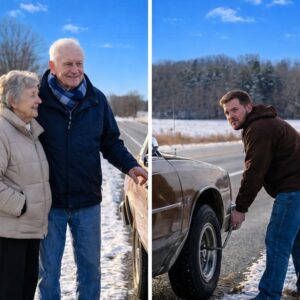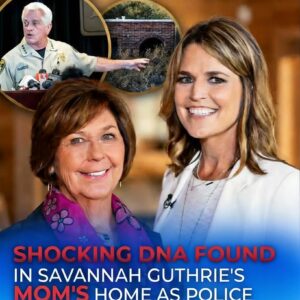The call came just after lunch. Grandma Harriet’s voice trembled.
“Ellis, they’re digging into the hill. It’s our land.”
Their peaceful ridge, where Grandpa Clarence had built wind chimes from old spoons and planted an oak for my mom’s birth, now roared with engines. When Clarence returned from the doctor, he found a fresh driveway carved clean across their property.
“Got a plot map?” he asked the excavator.
“Not my call,” came the shrug. “Talk to the owner.”
The owner, Desmond, dismissed him over the phone: “We checked satellite images. It’s fine.” Then—click. “It’s just land,” Harriet said softly. But Clarence knew—it was about respect.
Soon, the crew poured gravel like nothing had happened. Then their neighbor Fletcher called with an idea. At sunrise, he parked his old F-150 right across the encroaching strip and taped a sign to the windshield:
PRIVATE PROPERTY. DO NOT TOW. OWNER HAS PERMISSION.
The construction froze. Desmond raged and threatened to tow it, but police and survey pins proved him wrong. For three days, work stopped cold. Finally, Desmond called back, voice humbled. “Fine. What do you want?” “An easement,” Clarence said. “In writing. At a fair price.”
When the ink dried and the check cleared, Fletcher drove off to applause and free beer. “The funny thing,” Clarence said, grinning at the now-quiet ridge, “if he’d just asked nicely, we’d have let him cut that corner for free.” Sometimes justice is as simple as a well-parked truck.


